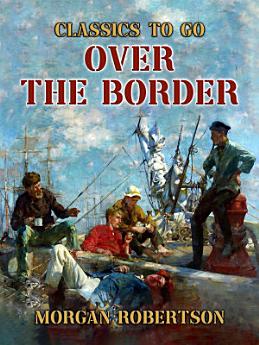Over the Border
Nov 2022 · Otbebookpublishing
Ebook
199
Pages
family_home
Eligible
info
reportRatings and reviews aren’t verified Learn More
About this ebook
'Over the Border' is a fascinating tale about hypnosis and mesmerism. The narrator lost much of his memory for many years after leaving his former life as a sailor. One night he visits a theatre where a hypnotist is performing. On his way home on the tram, he hears two doctors discussing a case at the hospital - a man with amnesia. One doctor recommends hypnosis as therapy to try to access the lost memories. (Amazon)
About the author
Morgan Robertson, born on September 30, 1861, in Oswego, New York, is a figure of enduring intrigue in American literature. Best known for his novella "Futility, or the Wreck of the Titan," Robertson's work has sparked endless fascination due to its eerie premonition of the Titanic disaster, written 14 years before the actual event. This uncanny prediction has cemented his place in literary and cultural history, often leading to speculation about his prophetic abilities.Robertson's early life was marked by the sea; he served as a merchant marine, which profoundly influenced his writing. His maritime experiences provided authentic detail and a palpable sense of realism in his sea tales, making them resonate with readers and critics alike. His works often explored themes of human fallibility, the capriciousness of fate, and the relentless power of nature—ideas that continue to captivate modern audiences.Despite his literary achievements, Robertson's career was not without controversy. He claimed to have invented the periscope, a statement that was met with skepticism and has been a subject of debate among historians. This claim, whether true or not, adds a layer of complexity to his persona, painting him as a man of both vision and enigma.Robertson's influence extends to contemporary writers who delve into speculative fiction and maritime adventure. His ability to blend technical knowledge with compelling storytelling set a precedent that many have followed. Though he passed away in 1915, Morgan Robertson's legacy endures, a testament to his unique blend of foresight, experience, and narrative skill.
Rate this ebook
Tell us what you think.
Reading information
Smartphones and tablets
Install the Google Play Books app for Android and iPad/iPhone. It syncs automatically with your account and allows you to read online or offline wherever you are.
Laptops and computers
You can listen to audiobooks purchased on Google Play using your computer's web browser.
eReaders and other devices
To read on e-ink devices like Kobo eReaders, you'll need to download a file and transfer it to your device. Follow the detailed Help Center instructions to transfer the files to supported eReaders.







